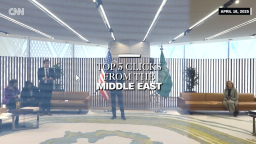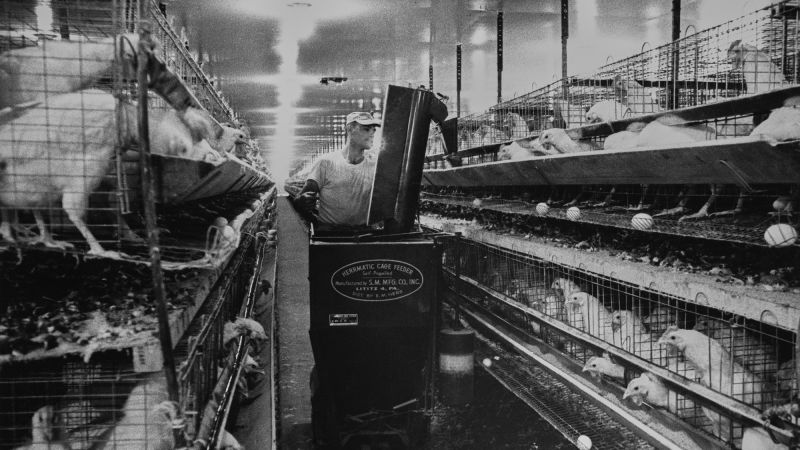“Rust-belt roads, once the lifeblood of America’s industrial heartbeat, are now witnessing an unlikely convergence of clucking chaos and revved-up rhetoric. In the unlikeliest of unions, chickens and pickup trucks have become the unwitting pawns in a high-stakes game of economic brinksmanship. As the trade war drumbeat grows louder, the usually disparate worlds of agriculture and automotive have collided in a battle that threatens to upend the very fabric of American industry. From the cornfields of Iowa to the factory floors of Detroit, the humble chicken and the mighty pickup truck have become symbols of a looming crisis that could have far-reaching consequences for the nation’s economy, its workers, and its people. In this article, we delve into the curious case of chickens, pickup trucks, and the trade war, exploring the unexpected ways in which these two American staples are being drawn into the crosshairs of a global economic showdown.”
The Broader Implications of Trade Wars

The ongoing trade war between the US and other nations has far-reaching consequences that extend beyond the immediate effects of tariffs on specific industries. One of the most significant implications is the reshaping of global markets, which can have long-lasting effects on the US economy and global trade.
According to experts, tariffs can lead to convoluted maneuvers by automakers and higher prices for consumers. For instance, the chicken tax, which was imposed in 1963, has led to massive profits for US automakers but less choice and higher prices for millions of American buyers.
The Human Impact of Trade Policy
Unseen Costs

The chicken tax has unintended consequences that affect American buyers and the economy as a whole. The 25% tariffs on imported trucks have led to higher prices for American consumers, who are unaware of the tax’s existence. According to preliminary analysis by Jonathan Smoke, chief economist at Cox Automotive, prices of American-built trucks rose about 5% to 6% a year, while car prices rose only 2% a year.
This has led to bigger profits for US automakers, which in turn have focused more on producing trucks. However, this has also meant that American consumers have limited choices and pay higher prices for trucks.

The Role of Politics and Lobbying
The chicken tax has survived numerous rounds of global trade agreements aimed at promoting free trade, including the creation of the World Trade Organization in 1995. This is because once tariffs are in place, they tend to stay in place, says Lawrence Friedman, a global trade attorney.
The auto industry and unions have played a significant role in maintaining the status quo despite changing global trade dynamics. According to Dan Ikenson, an economist and former director of international trade at the Cato Institute, “constituencies develop and they take on a life of their own, and that’s why they’re long-lived.”
Ikenson notes that the American beneficiaries of the chicken tax didn’t have nearly the political clout as the auto industry. By cutting out foreign competition, the chicken tax opened the door for America’s “Big Three” automakers, General Motors, Ford, and Chrysler, to raise prices on their trucks.
Conclusion
In conclusion, the article “Chickens. Pickup trucks. Trade war?” by CNN presents a fascinating exploration of the intricate connections between seemingly unrelated entities: chickens, pickup trucks, and the trade war. The article highlights how the global trade tensions between the US and China have impacted the poultry industry, leading to a surge in demand for chickens and, subsequently, the manufacturing of pickup trucks. The main argument posits that these events are interconnected, with the trade war influencing the demand for goods such as chicken and trucks.
The significance of this topic lies in its ability to expose the far-reaching consequences of global trade policies. The article demonstrates how the trade war has created a ripple effect, impacting industries and consumers worldwide. Furthermore, the article suggests that the trade war’s influence extends beyond the immediate economic implications, with potential long-term effects on global relations and stability. As the trade war continues to unfold, it is crucial to consider the broader implications and potential consequences for global economies.
As we move forward, it is essential to recognize the interconnectedness of global economies and the potential for trade policies to have far-reaching and unpredictable consequences. The article’s conclusion serves as a poignant reminder that the trade war’s impact is not limited to the immediate economic stakes, but rather has the potential to shape the global landscape for years to come. As we navigate the complexities of international trade, it is vital to adopt a nuanced understanding of the intricate relationships between seemingly disparate entities, lest we underestimate the profound consequences of our actions.
